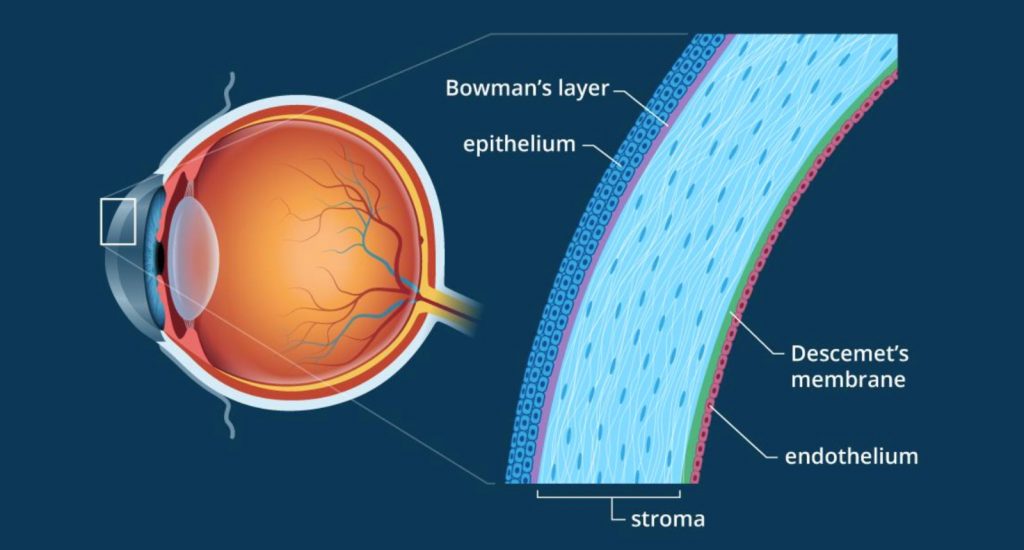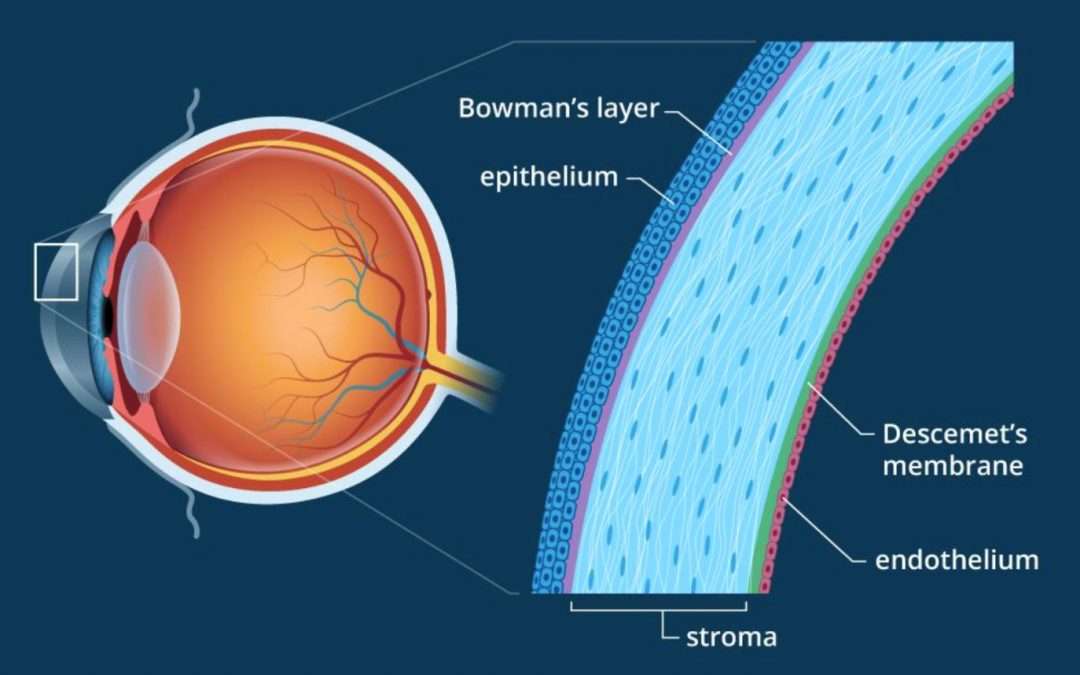
Dr Elaine Chong, Dr Elsie Chan & Dr Gregory Moloney, Centre for Eye Research Australia, Royal Victorian Eye & Ear Hospital, Melbourne, Victoria
Fuchs’ Endothelial Dystrophy is a genetic eye condition in which protein accumulates on the back surface of the cornea (known as the endothelium) causing it to break down. This in turn allows more fluid than normal into the cornea and causes swelling. The swelling causes the cornea to become hazy and the vision cloudy, particularly first thing in the morning.
“Currently, the only treatment available is a cornea transplant (graft). However, recent studies have suggested that Descemet’s membrane only removal without a corneal graft may produce equally good visual results. The effects may also be augmented by the use of Rho Kinase Inhibitor eye drops,” said the researchers.
Descemetorhexis without endothelial keratoplasty (DWEK) involves the removal of Descemet’s membrane without a corneal transplant. There is also emerging evidence that Rho-associated kinase inhibitor (ripasudil drops) assist with endothelial healing. In this research a prospective, randomised study will evaluate the efficacy of both of these noveltreatments in 60 Fuchs’ Endothelial Dystrophy patients.
“DWEK with and/or without ripasudil rescue is a novel treatment with enormous implications to patients and our public health resources. Corneal transplants are generally successful, but have a number of disadvantages,” said the researchers.
The shortcomings include the limited supply of donor cornea tissue for transplantation and the need for repeated transplants, as most transplants last for an average of less than 5 years. This study has the potential to not only improve patient care but reduce costs.
